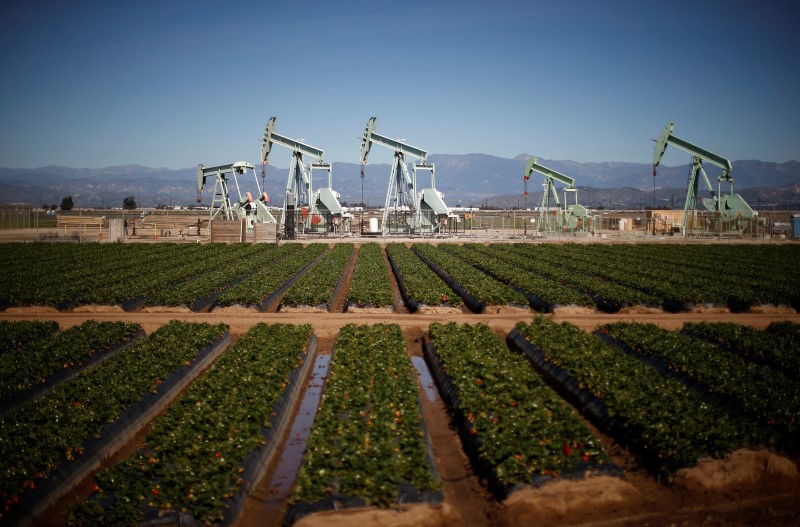By Simon Falush
LONDON (Reuters) - Crude prices fell on Wednesday as oil sands production in Canada restarted after forced closures due to wildfires, and as already record-high inventories especially in the United States grew.
International Brent crude oil futures (LCOc1) were down 28 cents at $45.24 per barrel at 0909 GMT. U.S. West Texas Intermediate (WTI) futures (CLc1) were down 44 cents at $44.22 a barrel.
A battle between Middle East producers for market share in Asia also weighed on prices, countering production declines and disruptions around the world.
"The narrative has shifted back to the supply build after the pinch in supply due to disruption in the oil sands and in Libya and Nigeria," Michael Hewson, chief market analyst at CMC Markets, said.
Oil sands companies around the Canadian energy hub of Fort McMurray began to restart operations on Tuesday after an out-of-control wildfire forced a week-long shutdown. Provincial and industry officials said production in much of the region should ramp up soon.
The fires in Canada's oil sands field region have knocked out around 1.5 million barrels of daily crude production, leading to a significant tightening of global markets.
Production declines and disruptions in the United States, Latin America, Asia, and Africa also acted as a support to prices this week.
But a growing glut is back in the spotlight.
Industry group American Petroleum Institute (API) said on Tuesday that U.S. crude inventories rose by 3.45 million barrels to 543.1 million barrels during the week ended May 6, enough to meet global crude demand for almost a week.
The U.S. Energy Information Administration will release official weekly inventory data at 1430 GMT. Analysts polled by Reuters expect the EIA to report U.S. crude stockpiles likely rose for the fifth consecutive week.
In a sign of a fight for market share, Iran has set its June official selling prices (OSPs) for heavier crude grades it sells to Asia at the biggest discounts to Saudi and Iraqi oil since 2007-2008.

Iran on Tuesday set the June OSP for Iranian Heavy crude at $1.60 a barrel below the Oman/Dubai average in the latest sign that producers especially in the Middle East are willing to accept low prices in return for market share.